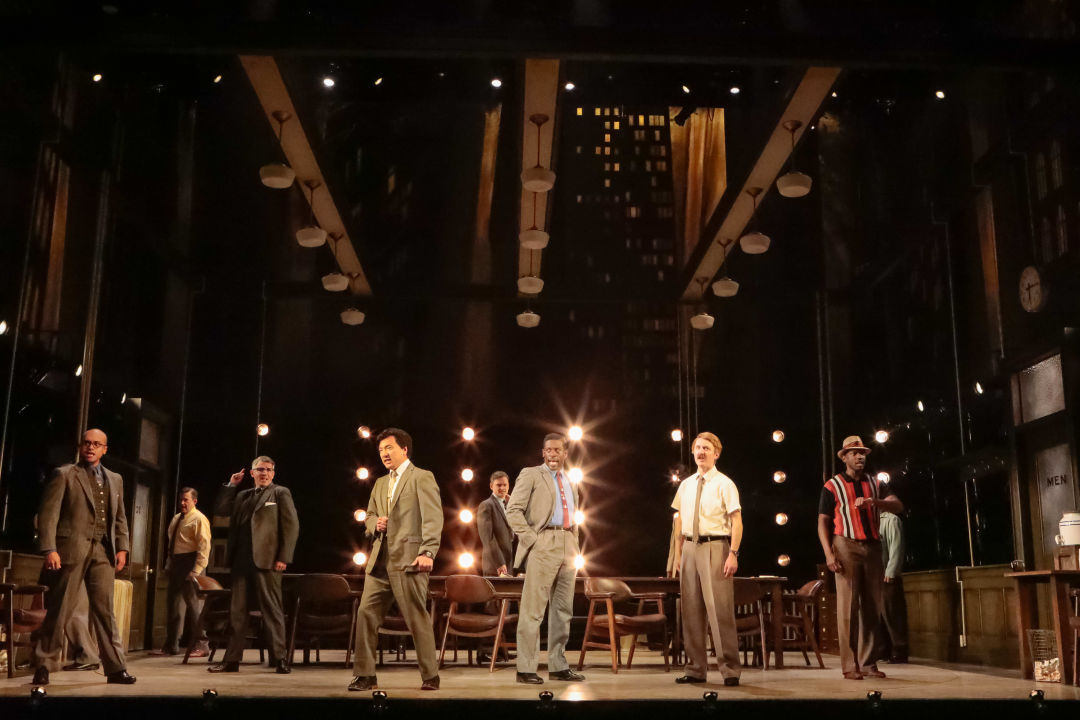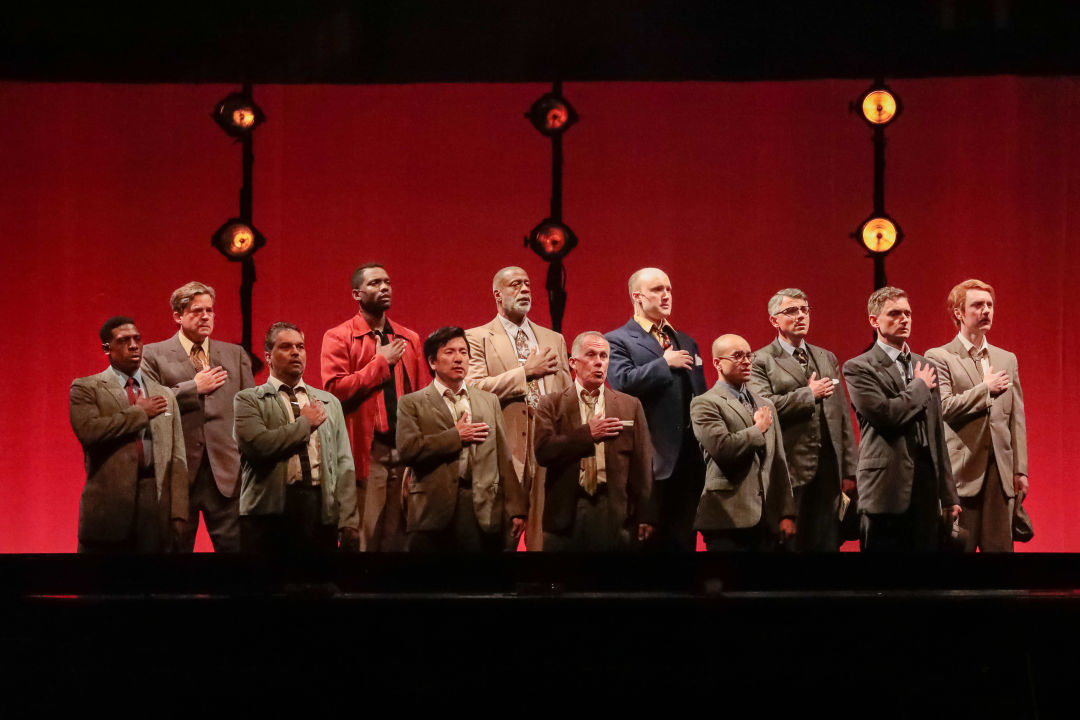The Verdict Is in on Asolo Rep's 'Twelve Angry Men'

Image: Sorcha Augustine
You might not immediately think that Reginald Rose’s durable play Twelve Angry Men is a subject ripe to become a musical. But if you give the Asolo Rep’s current production of this show (first performed at Minneapolis’ Theatre Latte Da two seasons ago in its world premiere) a chance, you may be pleasantly surprised.
Most of us are probably familiar with the 1957 film version starring Henry Fonda as the lone holdout juror in a murder trial, but the stage version has long been a staple of theaters, including an Asolo Rep production 13 years ago. In a taut 90 minutes or so, we get not only a courtroom drama but insights into the all-male jurors, each of whom has a distinctive background and story.
We learn those backgrounds gradually, but we’re clued in from the moment the actors (all clad in suits, ties and hats, as befitting the 1950s period) file onstage and introduce themselves via excerpts from the voir dire section of the trial. Their professions range from bank clerk to watchmaker to stockbroker to ad man, and, unlike the original version where all the jurors are white, their ethnicities vary, too. There’s a Korean, a Hispanic American, a German immigrant, and jurors of color including the lead Juror No. 8 (Curtis Bannister), the one who’s arguing there’s a reasonable doubt in the case of a young Hispanic male accused of stabbing his father.

Image: Sorcha Augustine
Most tellingly, perhaps, the jurors are also fathers as well as sons, and the complexities of those personal relationships can’t help but filter into their decision making. With 11 of the jurors at first voting for a guilty verdict, how will Juror No. 8 convince any of them to rethink their biases?
In the book adaptation by David Simpatico, with music and lyrics by Michael Holland, much of the dialogue segues into songs—not necessarily the type of Broadway musical numbers with an obvious beginning and end. The inspiration is jazz (fitting for the period), with the musicians led by conductor Jenny Kim-Godfrey making good use of drums, guitar, bass, vibes and more to set the mood.
The score also serves to ratchet up the tension as the characters argue and reveal, especially when it comes to bigoted Juror No. 10 (James Michael Detmar), whose anti-immigrant rant scorches, or Juror No. 3 (Charlie Clark), whose deeply buried heartbreak about his relationship with his own son causes his hostility, or Juror No. 11 (Conor McGiffin), whose escape from the Holocaust renders him vulnerable but fervent about American democracy.

Image: Sorcha Augustine
Virtually every cast member gets his chance to make an impression, whether with brief solos or duos or when singing in unison. (There's a surprising but effective choral number at the end where harmonies blend beautifully.) Benjamin Olsen’s set design of a New York City courtroom is both grungy and yet a reminder of the huge importance of the jury system in this country; and Mathew LeFebvre’s suit costume designs help us to immediately discern the differences between each of the 12 characters.
Peter Rothstein’s direction (augmented by some choreographic movement by Kelli Foster Warder, although there’s nothing like a traditional dance number in this piece) moves the action smoothly and plausibly to its conclusion. And while you won’t leave the theater humming any easily remembered tunes, you should come away with an overall sense of how the score enhances the story and its dynamics. You may even want to put an old ‘50s jazz album on your record platter.
Twelve Angry Men continues through June 9 to close the Asolo Rep season. For tickets, call (941) 351-8000 or visit asolorep.org.


